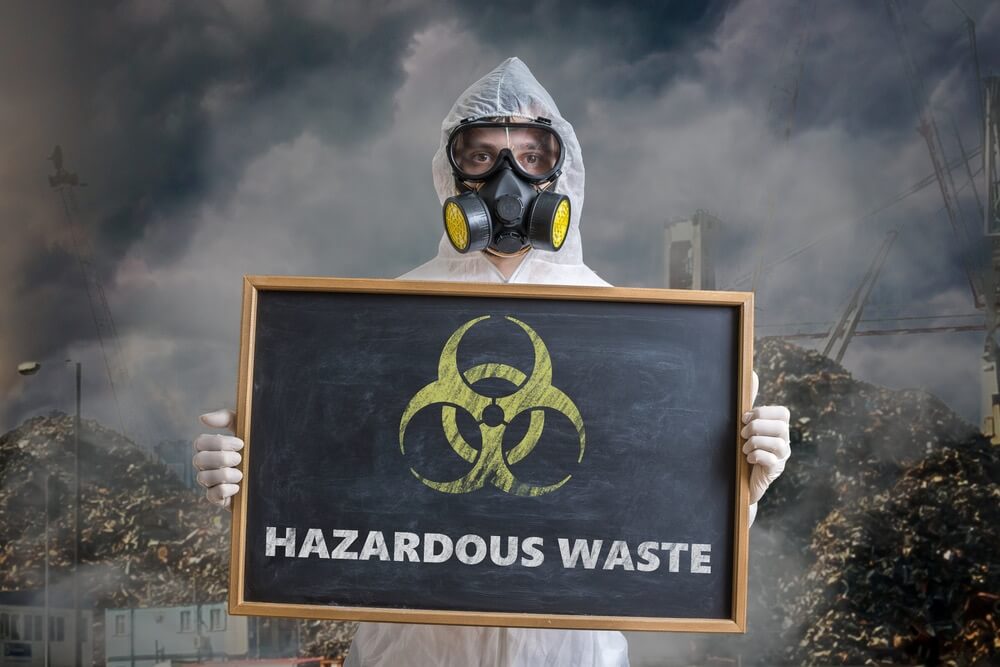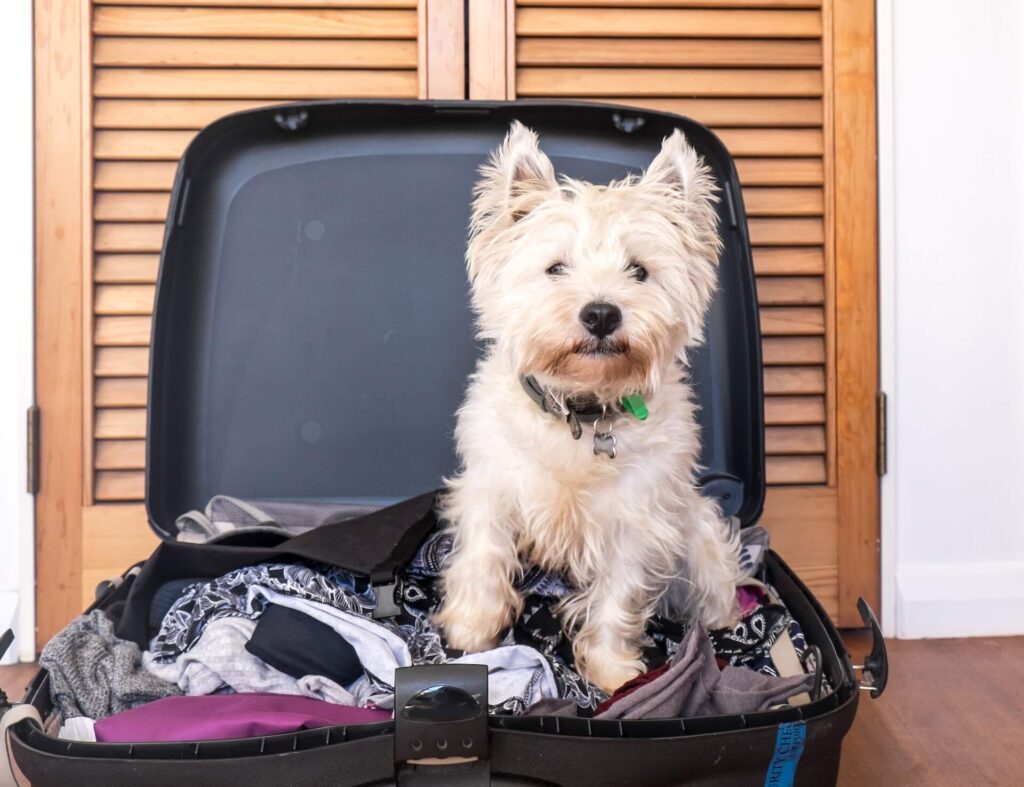If you are currently going through the process of packing and preparing your belongings for moving overseas, it’s good to be informed on all relocating-related matters. One of them is knowing which items movers won’t move, so you don’t have to go through some unnecessary issues. This article will help you learn what won’t movers move and why it is essential to remove those stuff from your boxes.
Prohibited items that international movers won’t pack and move for you are hazardous materials and easily flammable substances. They also will not carry stuff that requires special care during transportation, such as perishable foods, plants, and pets. Remember to remove this stuff before the professional arrives.
Why It’s Important to Inform Yourself About Items Movers Won’t Move?
Relocating abroad is a process that requires finishing lots of tasks and taking care of many different problems. There are plenty of things to do before you set off to a new country, and it is always wise to prepare well by writing down a to-do list.
When it comes to moving internationally, most people need help from professionals to move more efficiently, organize their move better, and ship their belongings across the world. That’s why preparing for movers is crucial, especially if you’re packing some of your belongings on your own.
Being aware of which stuff you must not pack will save you from unpleasant surprises and will help the professionals operate quickly and more efficiently. Avoiding these common relocating mistakes will save you time, and you will avoid stressing out.
Hazardous and Flammable Materials Should Not Be Packed Up for the Move
When it comes to hazardous and flammable substances, under no circumstances should you pack them with your personal belongings for relocating to a different country? Not only will the professionals not move them, but they are also illegal for long-distance and international transportation in many countries. Here’s a list of stuff that you should avoid shipping:
- Acids,
- Gasoline, kerosene,
- Weapons,
- Pool chemicals,
- Fireworks,
- Batteries,
- Equipment that has gas inside.
It is pretty clear why you should avoid packing up these dangerous materials. Most companies will warn you about what you won’t remove, and you must respect their instruction. If you don’t, and something bad happens during the trip, no one but you will be held accountable for the damage.
Certain Household Products Are Flammable as Well
It is super important to inform yourself well about which contain flammable substances. You might be surprised to find out that some things that you use on a daily basis in your household are prohibited for transportation. Even beauty products for pampering yourself. Generally, anything that could burst into a flame is not permitted:
- Paints,
- Nail polishes,
- Nail removers,
- Cleaning supplies,
- Bleach,
- Hair sprays,
- Deodorant.
How to Get Rid of These Dangerous Materials?
Simply tossing some of these flammable materials isn’t recommended, as they could potentially create a dangerous situation. While preparing for a move, be sure to research the laws about hazardous waste disposal. Suppose you’re not sure about what to do with the products. In that case, you can always contact the US Environmental Protection Agency to inform you of the laws and regulations regarding this topic.

Get Rid of Perishable Food on Time
When thinking about “what will packers not pack?” food might not come to mind immediately. But, indeed, most professionals don’t want to pack and ship perishable food in their trucks and shipping containers.
Perishable stuff is foods like milk, butter, yogurts, frozen foods, and similar stuff that could quickly go bad. Unless you have a large mobile cooler to put all of your foods into and transport them to another country, it is best to remove them. Once you know approximately when your moving day will be, stop buying new groceries, and try to eat everything from your fridge. To avoid tossing any foods, you can also consider donating them to those in need.
Which Foods Are Allowed For Moving?
The good news is that not all foods are forbidden for transportation. Your professionals will be able to pack up and ship foods that are non-perishable and unopened. Usually, it is considered acceptable to transport canned food (such as soops, pasta, and similar stuff) since they can sit in the shipping container for a long time and not go bad. However, it is recommended to avoid this since it is unnecessary.
Plants Are Not Allowed in the Moving Trucks and Shipping Containers
When thinking about what might not be allowed for international relocation, plants do not sound like something that could be potentially dangerous. However, they are, and you shouldn’t be packing them into your boxes. It is highly recommended to leave the vegetation from your home behind or get rid of them before the trip.
Why Is Moving Plants Not Allowed?
Even though relocating a plant might not seem like a big hassle, in reality, it very much is. To ship a live plant, it has to comply with international and national phytosanitary regulations. That basically means you have to have a license for transporting vegetation.
Plus, plants must be kept in particular conditions, with a specific temperature and humidity, when traveling for a long time. So most companies can’t be bothered with that. If you don’t want to go through getting licenses for relocating your home vegetation to another country, consider giving them to someone.

Are You Allowed to Transport Medications Internationally?
When packing for a move, you might wonder whether it is safe to pack and transport medications. This depends on the type of medication you plan on carrying and also the regulations of the country you’re relocating overseas to.
Usually, medicine that is on prescription is not allowed inside the shipping container. Regular vitamins and flu medicine are probably fine, but that also depends on the company’s rules. It is smart to research and check everything. Contact your doctor to ask for advice about transporting that medication, as well as the international moving company you’re working with, to see where they stand on this.

It Is Recommended to Move Certain Items With You
There are certain things that can be transported in a truck or a shipping container, but it is not advisable to do so. Usually, it is not recommended to pack up valuable stuff into boxes, as some belongings are just too priceless and should not be handled that way.
Some of those things are expensive jewelry, electronic devices (laptops, tablets, phones), house keys, artwork, antiquity, family heirlooms, and other similar stuff that is hard or even impossible to replace. Accidents can happen, and you do not want any of these goods to get lost during the transport.
Arrange and Bring Your Important Documents With You
When it comes to “hard to replace” stuff, your documents are one of the most important things to take care of, and they must not get lost in transportation. Even if you are a last-minute move, be sure you arrange and organize your documents for the relocation. Losing some of these documents could mess up your entire relocation process.
You could have certain problems with settling down and organizing your life in the new country, like finding an apartment and many more. So before the relocating day comes, be sure all of your documents are organized and ready. Some of those essential documents should be:
- Identification documents,
- Car papers,
- Bank document
- Home papers,
- Medical records,
- School records, diplomas, and other certificates,
- Important contracts.
When it comes to organizing your documents for a relocation, you can find very educational videos on youtube. Here’s a short video full of tips and tricks to use when preparing documents for relocating abroad.
Find a Safe and Sound Way to Relocate Your Pets
Most people that own pets are cautious when it comes to taking good care of their furry friends. So if you’re planning on relocating your pets, you should probably carefully think through how you’re going to relocate them. It might be unnecessary to say that relocating companies will not be able to take care of your pets, and putting them into a truck is not an option under any circumstances.
It is best to take them with you if you’re traveling in a car. It is also not impossible to bring your pets with you on an airplane. Just make sure you inform yourself about the rules of flying with pets. Contact the airline company, and they will help you out on this one. In case you own certain exotic animals, such as snakes, lizards, or other creatures that could be dangerous, inform yourself of the rules of the country you’re heading to.

It’s Best to Contact Your International Mover to Help You Out
Worrying about what to pack and what not to pack when relocating to a new home can be pretty stressful. Sometimes you might read some wrong information or misunderstand specific requirements and end up having a problem. So if you are hiring a relocation company and their international moving services, it is best to ask them to help you out.
Request a List of Forbidden Items
Because each company has different requirements, rules, and regulations, it is best to request a list of all the illegal stuff and have it written down. If the relocation company is reputable, you should not have a problem contacting their customer service department and asking questions such as “Do movers move everything?” or “Will movers move things that are not in boxes?”.
You could also just book their packing services, as they will be able to take care of all the problematic items, and you will not have to stress about it too much. They will know how to carefully pack and protect everything, and they will bring their own boxes and packaging supplies. It is definitely an option worth investing in.
Staying Safe Should Be the Most Important Thing When Relocating
Now that you have read everything, there is to know which stuff must not be packed and transported. You are ready to organize a safe trip. Keep in mind that everything you have read today is significant to keep yourself and the people around you safe. It is always smarter to be safe than sorry, so be super careful next time you’re preparing for a relocation.
